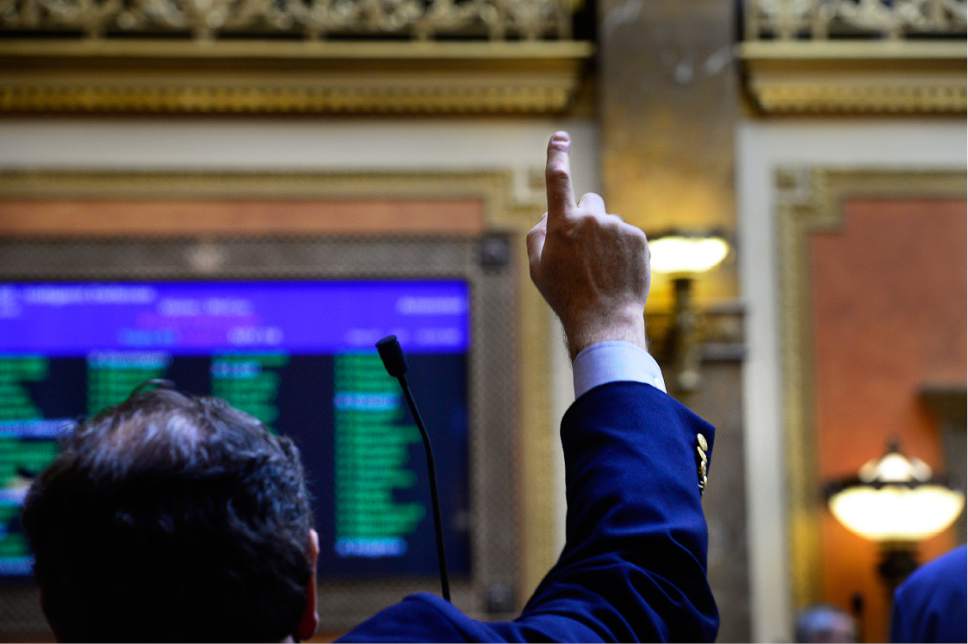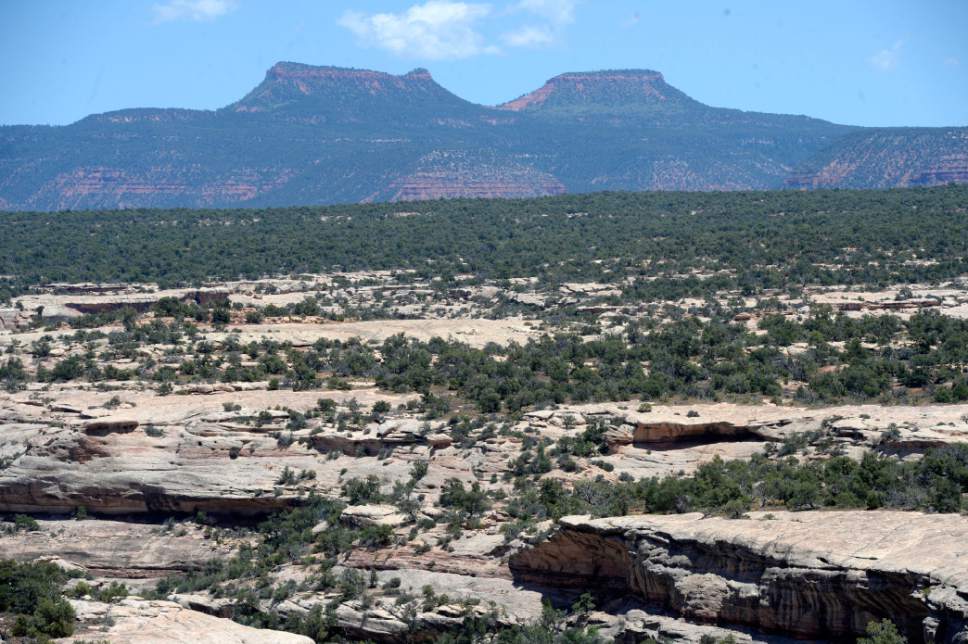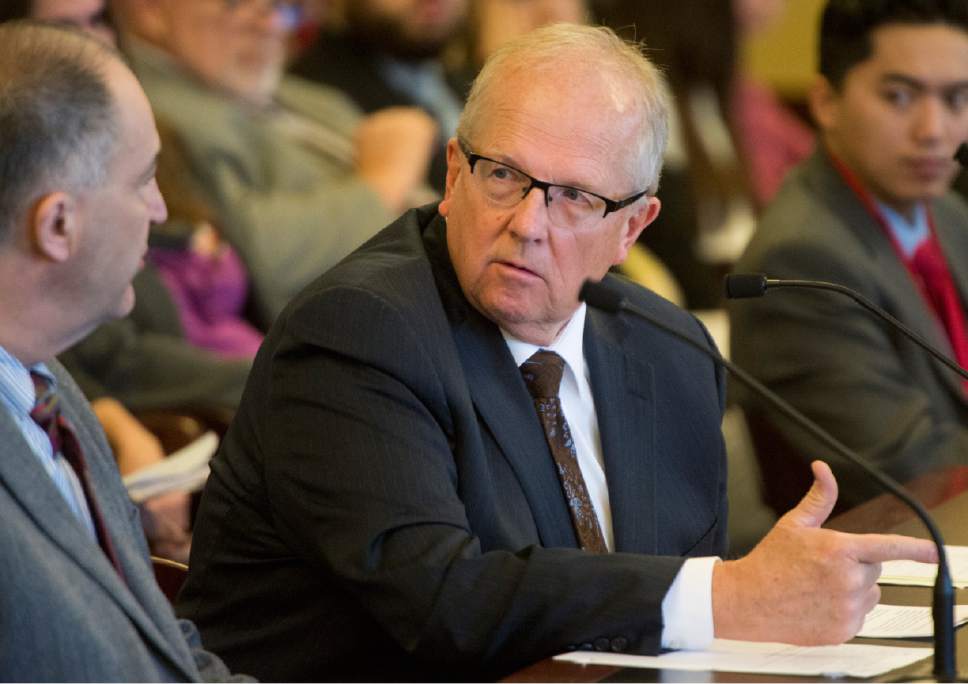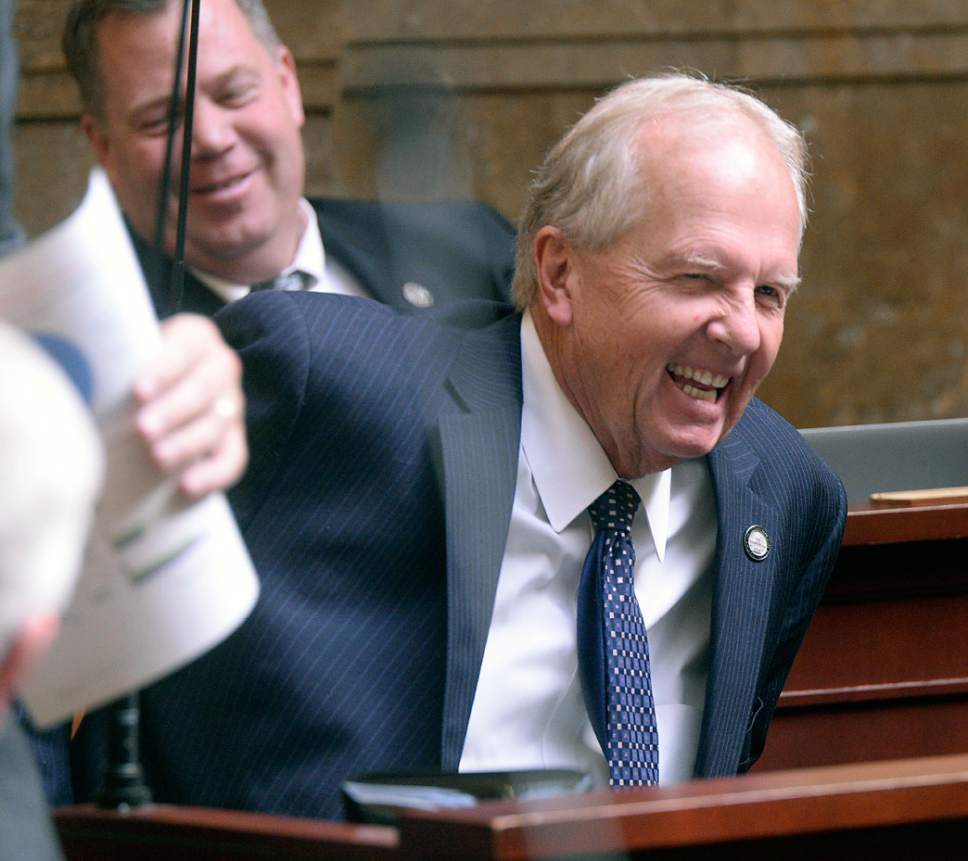This is an archived article that was published on sltrib.com in 2017, and information in the article may be outdated. It is provided only for personal research purposes and may not be reprinted.
Republicans conceded Monday that they violated Utah House rules last week when they held what turns out to be an improper hearing on resolutions asking President Donald Trump to erase the Bears Ears and alter Grand Staircase-Escalante national monuments.
But then they voted to say, essentially, that it doesn't matter.
They voted 55-17 to reject Democratic calls for a do-over proper hearing, and now plan to debate the resolutions Tuesday before the full House — without the normally required proper public hearing on a bill.
The problem comes because the hearing last Friday was conducted by the House Rules Committee, led by Rep. Mike Noel, R-Kanab.
Noel strongly opposes the monuments, both in his district, and is sponsoring the resolution seeking to erase most of the 20-year-old Grand Staircase monument.
House rules allow that committee only to hold rare hearings on resolutions to change House operations or rules, and no other topic. The House Rules Committee on Monday conceded that Noel had made a mistake holding the hearing Friday, attended only by monument opponents from the public who testified in favor of the resolutions.
But instead of sending the resolutions to another committee for a proper hearing, House Rules again voted to move HCR11 and HCR12 directly to the House floor for debate — which it said rules allow.
Democrats protested strongly, but are vastly outnumbered. They argued that House rules require resolutions to have a proper hearing and be recommended by an appropriate committee.
"Rules matter. The Rules Committee matters," said Rep. Joel Briscoe, D-Salt Lake City, who forced a losing vote on sending the resolutions for a hearing to the House Natural Resources Committee.
"When House Rules hears a resolution calling on the president of the United States to do something that has never been done before, which is to completely rescind a designation by executive action on a national monument, that is not reviewing proposed House rules," Briscoe said.
House Minority Leader Brian King, D-Salt Lake City, said, "We need to give the public the opportunity to be heard on this," he said, adding that hearing opposition is important.
Noel said Utah's congressional delegation has requested that the resolutions pass quickly to help them bolster discussions with Trump asking him to rescind the monuments.
"Time is of the essence," he said. Noel said the House will still have a vigorous debate on them, and the Senate should have a required hearing also.
Floor debate is reserved only to legislators, with committee hearings serving as the only forum for testimony from the public.
Noel said the House, especially near the end of the session, will often suspend its rules to pass many Senate bills that have not had hearings in the House — and sees this as no different.
"Yes, we have to follow the rules, but we also have to look at what the rules are trying to accomplish. In this case we were trying to have a hearing," Noel said. "That's what we did."
Senate President Wayne Niederhauser, R-Sandy, said the resolutions would be placed in a traditional standing committee — most likely the Senate Natural Resources, Agriculture and Environment Committee — when they reach the Senate.
While there can be circumstances when a bill needs to be quickly moved through the Legislature, he said the Senate tries to maintain its process as much as possible.
"It's just our standard procedure," Niederhauser said. "I don't see any reason to change it."
Senate Minority Leader Gene Davis, D-Salt Lake City, said Utahns deserve a chance to weigh in on the potential changes to national monuments within the state, rather than having those resolutions "railroaded" through the Legislature.
"As long as the public has input on it, in the committee, that's what really matters," Davis said.
President Barack Obama created the new 1.35 million-acre Bears Ears National Monument last month with Utah elected leaders criticizing what they say was a lack of opportunity for the public to weigh in.
The 1.9 million-acre Grand Staircase-Escalante National Monument was designated in 1996 by Bill Clinton.









